Using the Reflect Viewer
This page provides an overview of the default Unity Reflect Viewer.
Opening a project
The Viewer opens to the Projects screen by default.
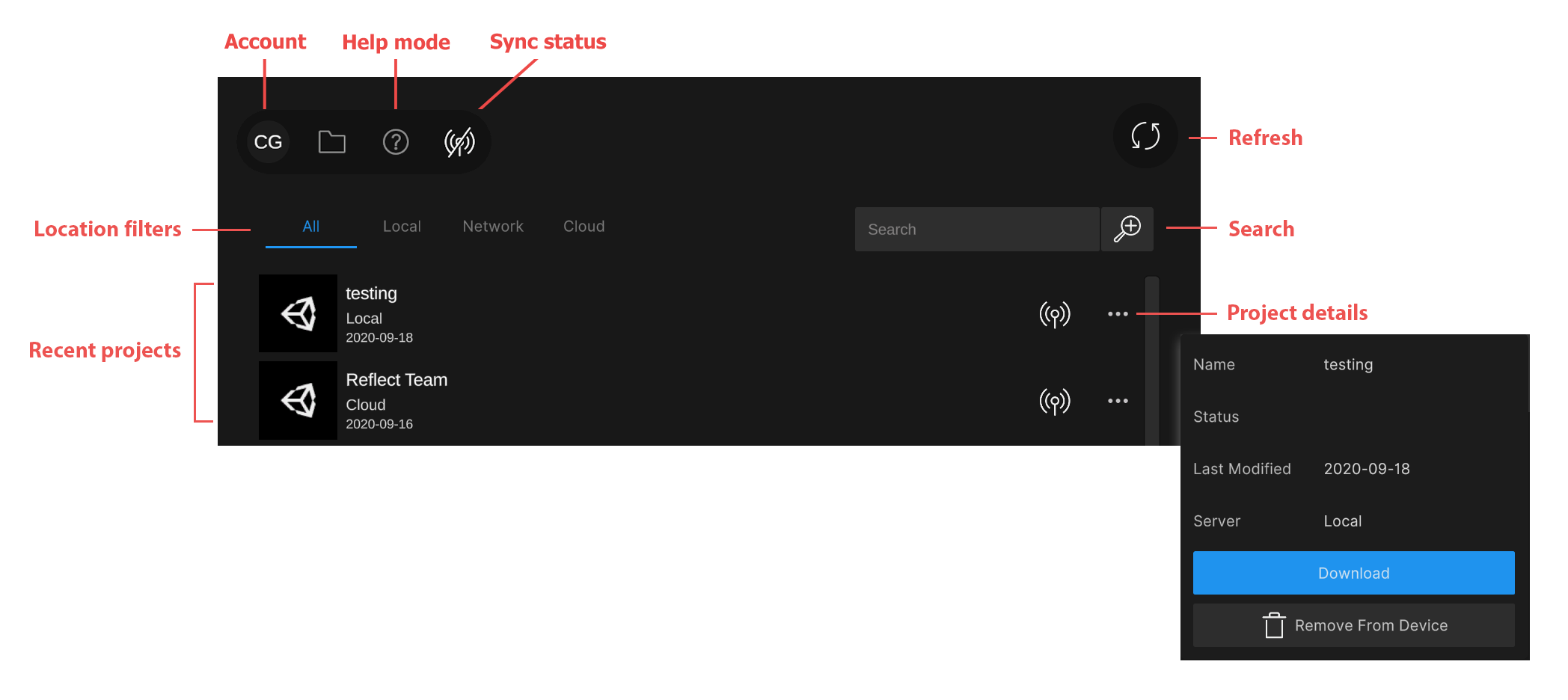
To refresh the list of projects, click the Refresh button ( ) in the top right corner of the screen.
) in the top right corner of the screen.
To open a project, click its name in the projects list.
For more information about the options on the Projects screen and how Reflect projects are stored and synced, see Managing your storage.
The Viewer interface
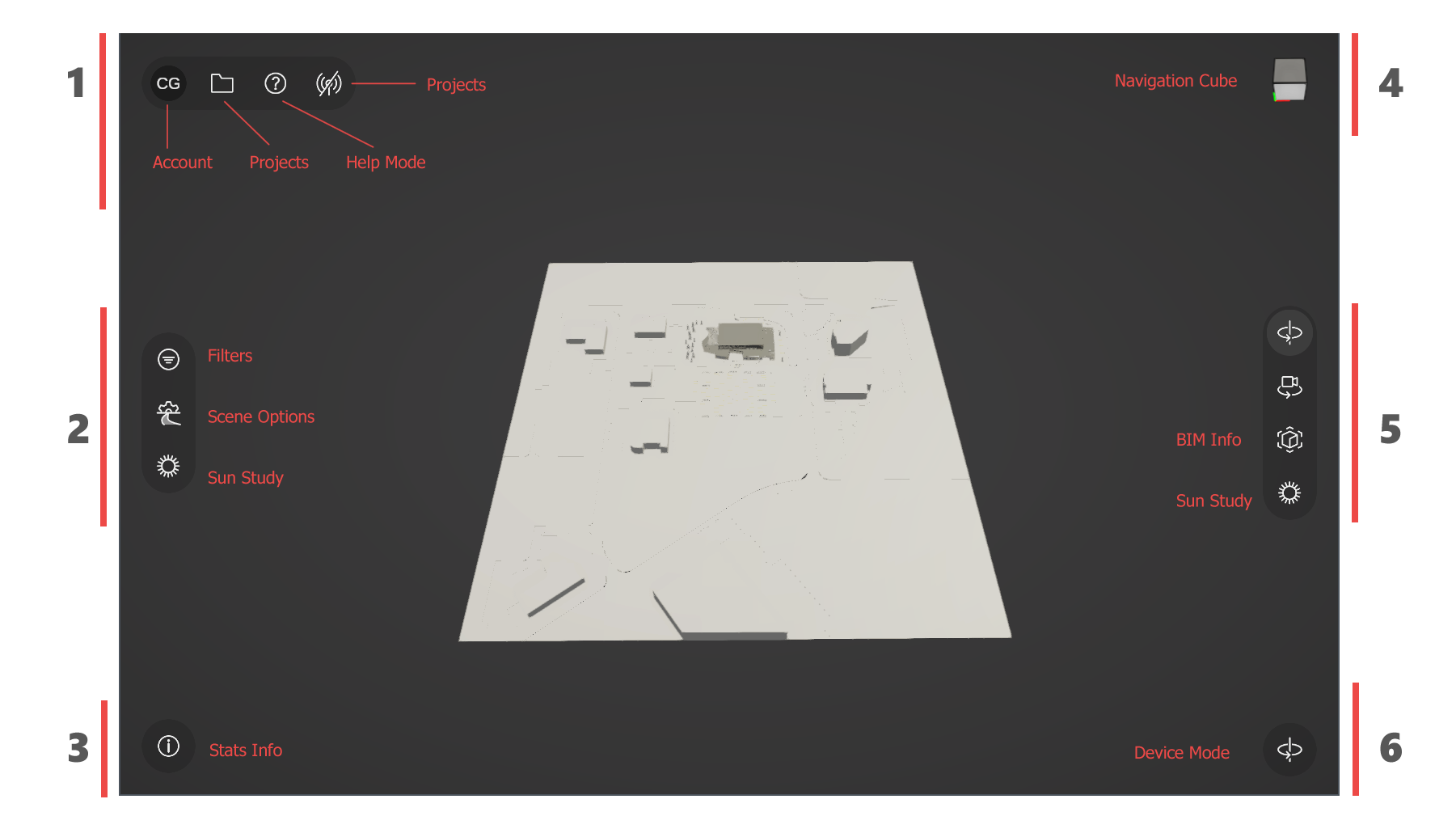
1. Main menu
The main menu is located in the top left corner of the Viewer.
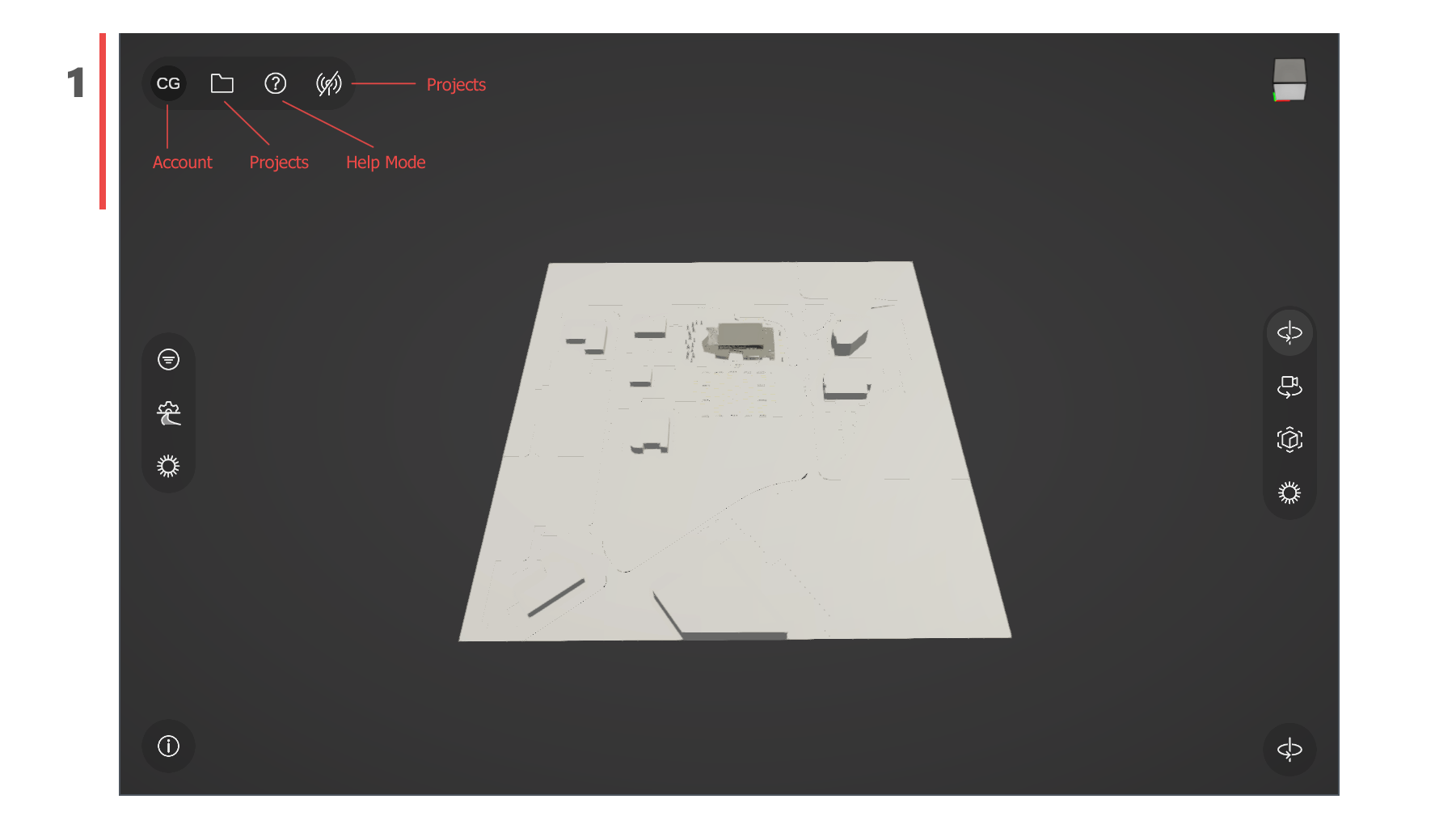
Logging in or out
To log in or out or to access the BIM 360 Dashboard, click the Account icon.
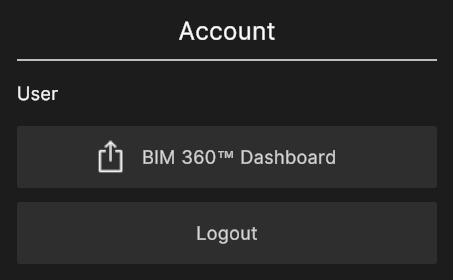
Opening the Projects screen
To open the Projects screen, click the Projects icon.
Enabling Help Mode
For assistance with the Viewer tools, click the Help Mode icon.
To return to the Viewer, click the Help Mode icon again.
Turning the sync service on or off
Click the Sync status icon to turn the sync service on or off.
When the service is active, the icon looks like this: 
When the service is inactive, the icon looks like this: 
2. Scene settings
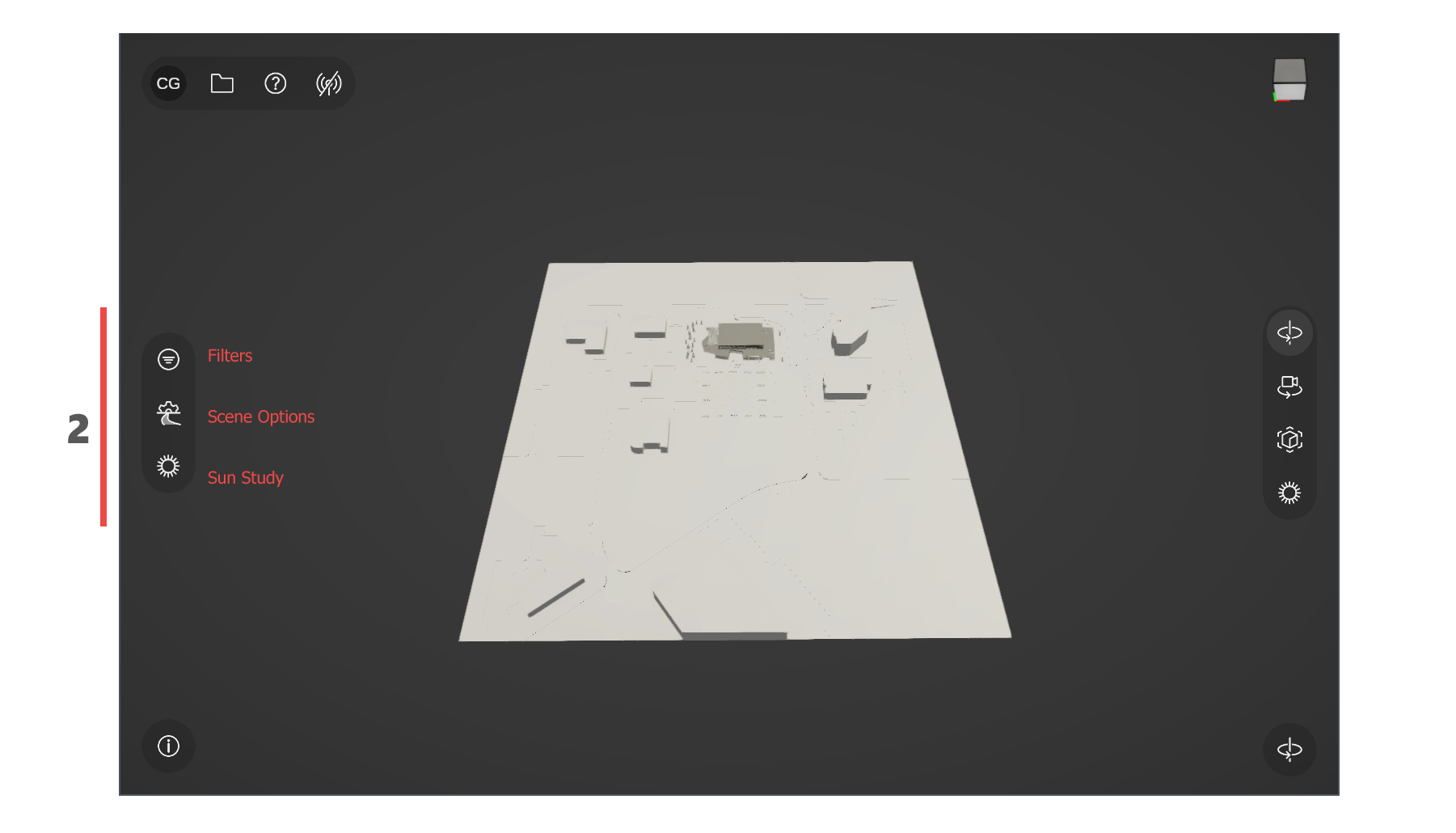
Filtering BIM visibility
Click the Filters button ( ) to toggle the visibility of BIM data.
) to toggle the visibility of BIM data.
- Tap the eye icon next to each filter to turn it on or off.
- To see a different group of filters, click Category and select a category from the drop-down menu.
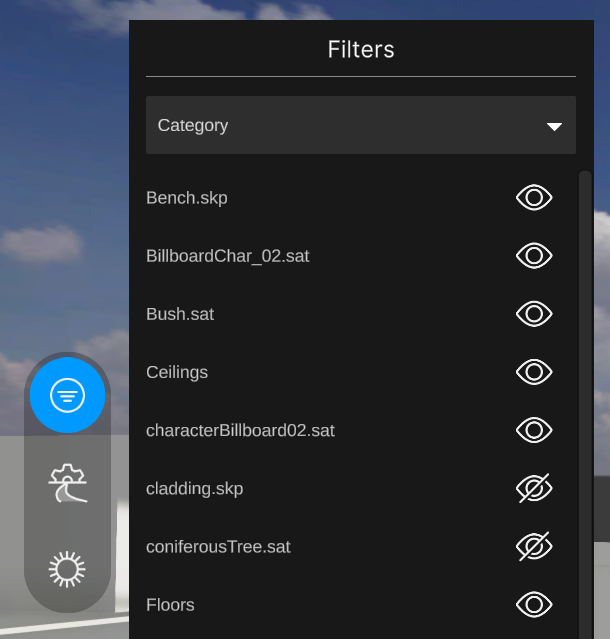
Toggling texture and light data
Click the Scene Options button ( ) to turn texture and light data on or off.
) to turn texture and light data on or off.
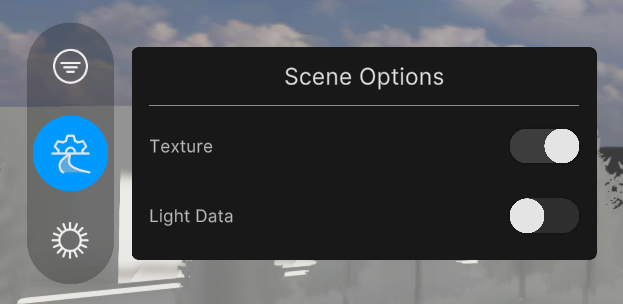
Adjusting the position of the sun
The Sun Study buttons ( ) let you adjust the position of the sun based on a specific time, date, and location.
) let you adjust the position of the sun based on a specific time, date, and location.
Entering specific values
The Sun Study button on the left-hand side of the screen lets you adjust the position of the sun by entering specific values.

You can control any of the following parameters:
| Parameter | Description |
|---|---|
| Time of Day | The time of day in 24-hour format. |
| Time of Year | The day and month of the year. |
| UTC Offset | The time difference from UTC in hours and minutes. |
| Latitude | Latitude of the desired location. (0 degrees is the equator, 90 degrees is the North Pole, and -90 degrees is the South Pole.) |
| Longitude | Longitude of the desired location. (0 degrees is Greenwich, with positive values to the east and negative values to the west.) |
| North Angle | The direction of north in degrees. |
Using the radial menu
The Sun Study button on the right-hand side of the screen lets you adjust the position of the sun by rotating the radial menu.

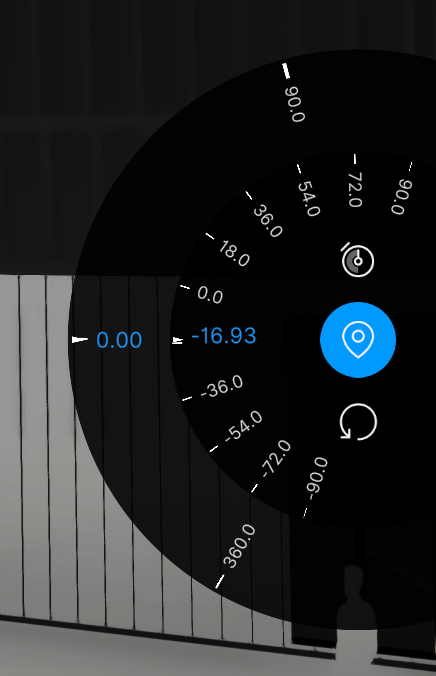
Click  to switch to the date and time dials. The outer dial sets the date in months and the inner dial sets the time of day in 24-hour format.
to switch to the date and time dials. The outer dial sets the date in months and the inner dial sets the time of day in 24-hour format.
Click
 to switch to the coordinate dials. The outer dial sets the solar azimuth and the inner dial sets the solar altitude. These coordinates are translated into the directional light’s rotation.
to switch to the coordinate dials. The outer dial sets the solar azimuth and the inner dial sets the solar altitude. These coordinates are translated into the directional light’s rotation.
Click
 to reset the dials to their starting position.
to reset the dials to their starting position.
3. Stats menu
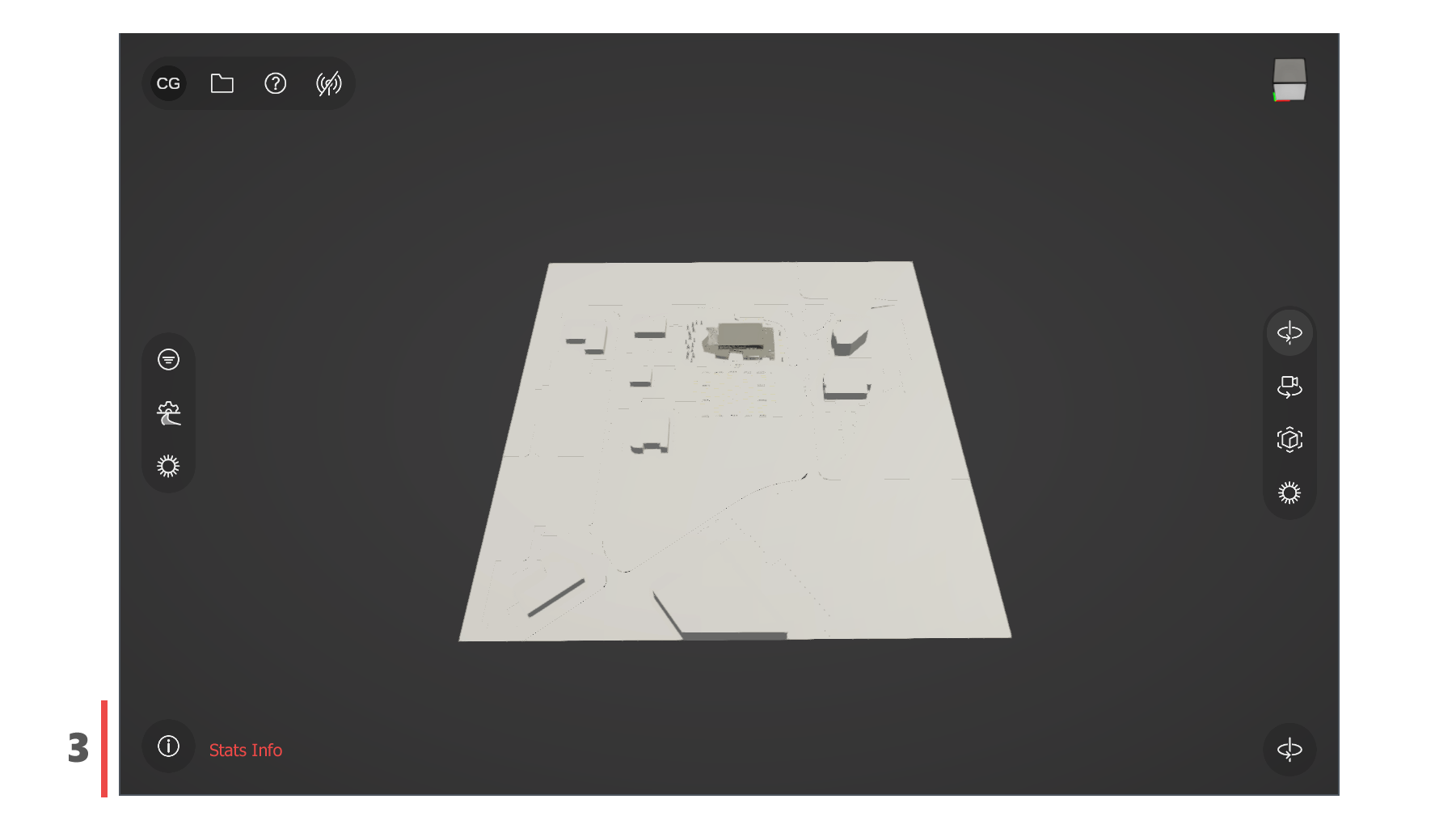
Showing the Stats Info menu
To display statistics about your scene, click the Stats Info button:
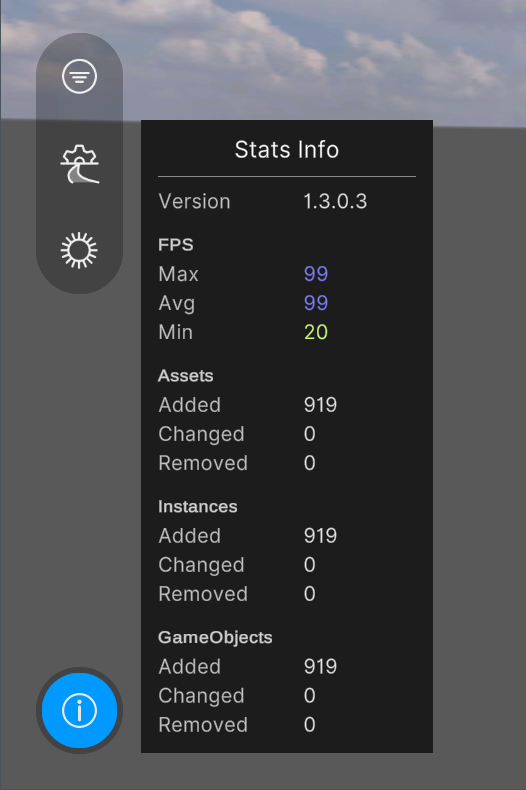
4. Navigation cube
Click the navigation cube for easy access to left, right, and top views of your model.
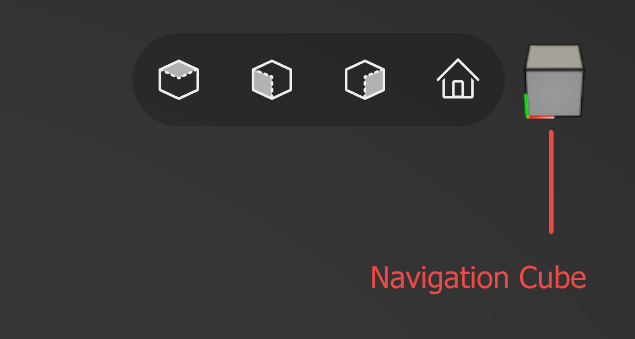
Click the house icon to return to the default view.
5. Contextual menu
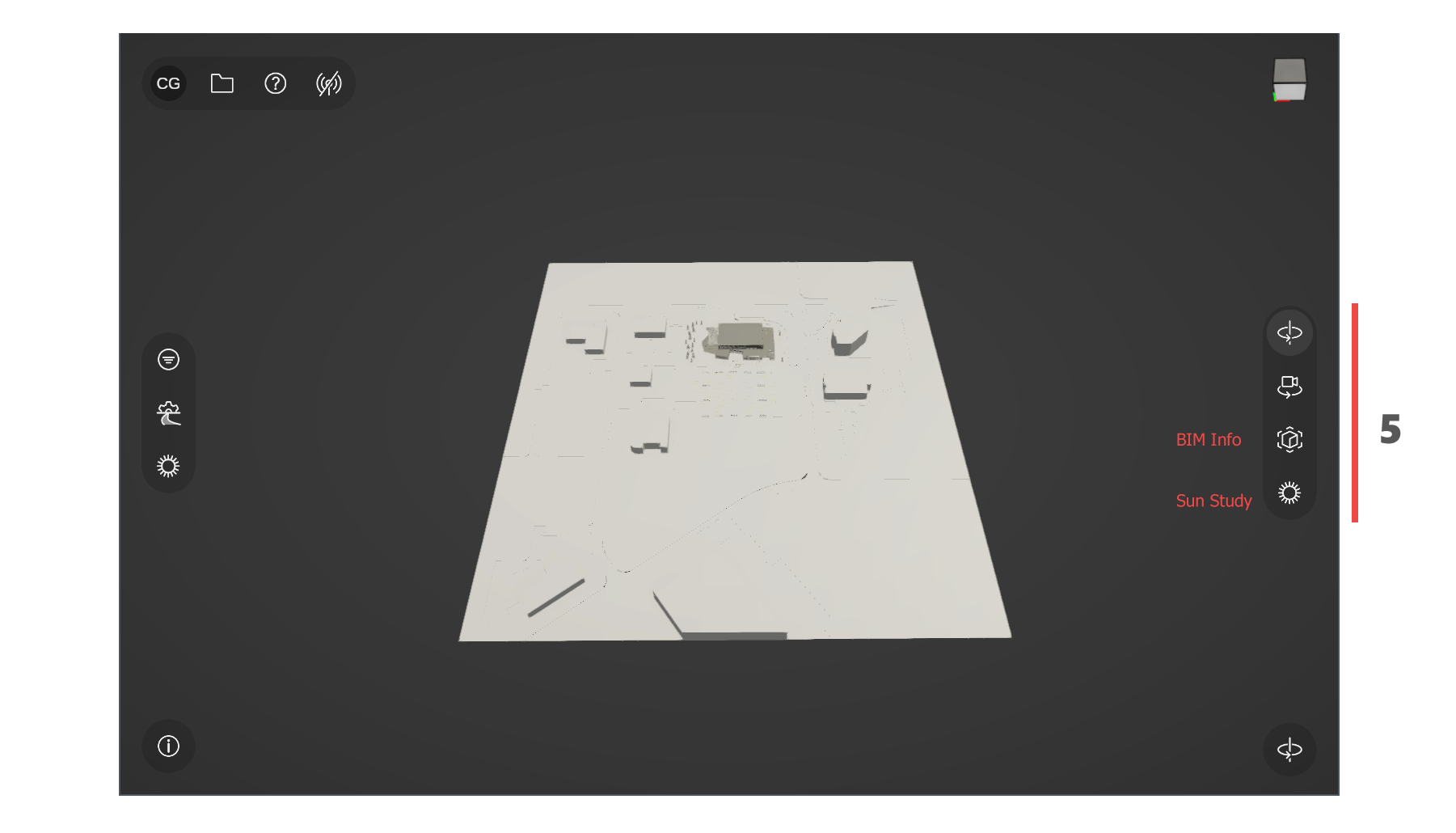
The Reflect Viewer lets you move, orbit, or zoom around your scene. The currently selected navigation control is shown in the right-hand menu.
Move (Pan) 
To move the camera from your current position, use the WASD keys to move left/right/forward/backward and the Q and E keys to move up and down.
You can also pan the camera freely by clicking and dragging with the middle mouse button or by holding the Alt key while you click and drag.
Orbit 
To rotate the view around your current position, right-click and drag inside the Viewer.
Zoom 
Use your scroll wheel to zoom in and out. You can also double-click a point inside the Viewer to jump there quickly.
Seeing BIM information about a particular object
Click the BIM Info button ( ) and click on an object in your scene to highlight it and display its metadata.
) and click on an object in your scene to highlight it and display its metadata.
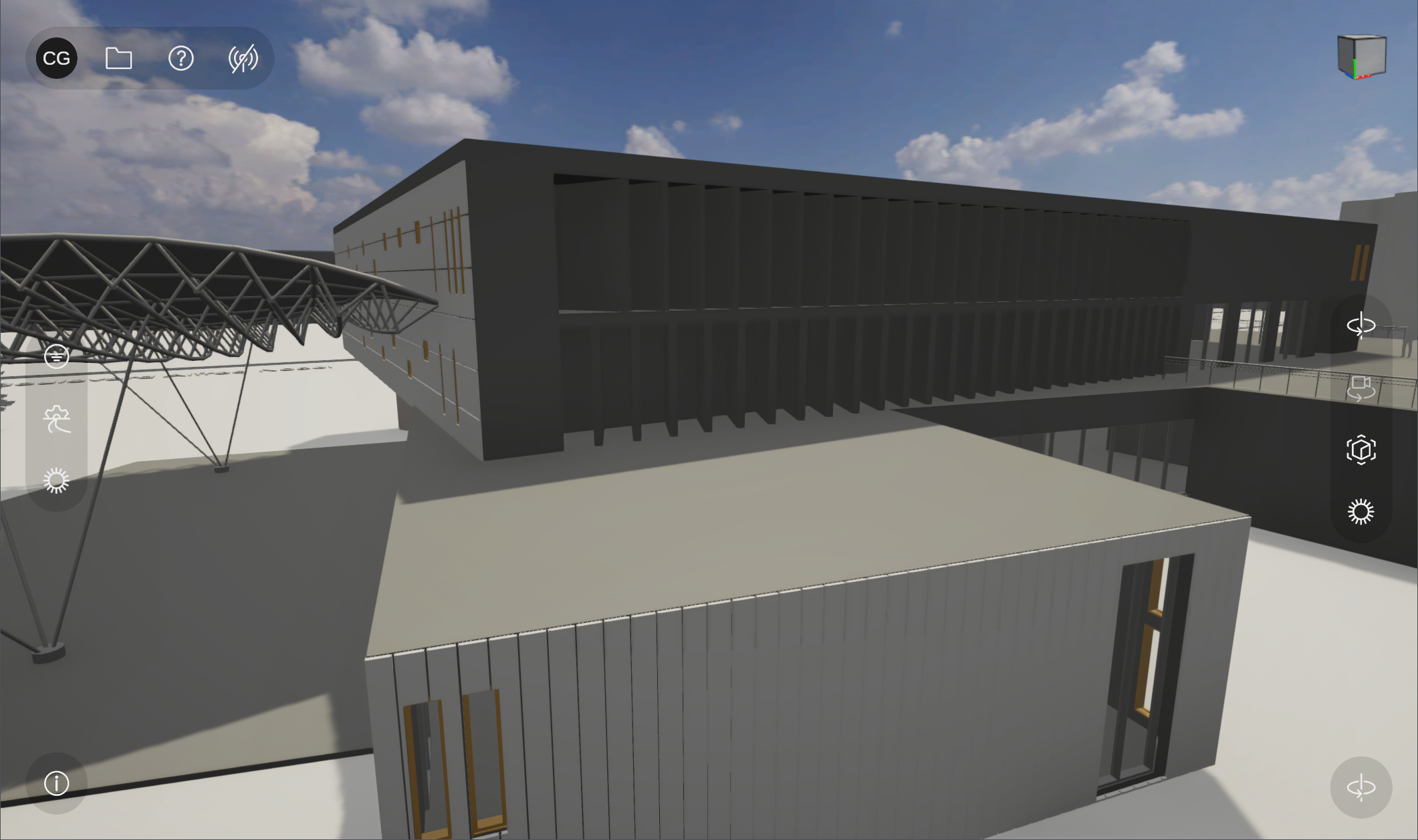
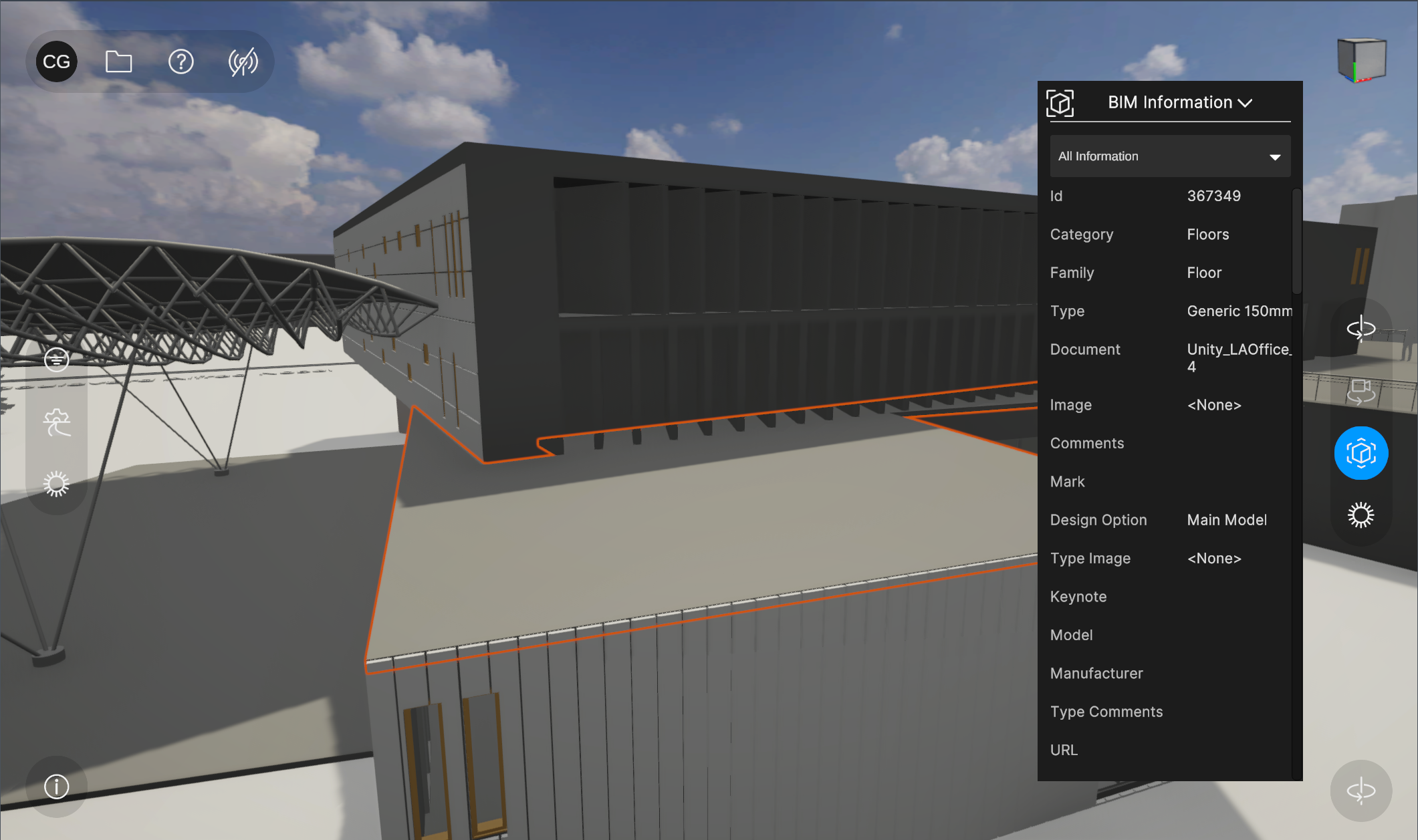
To switch between metadata categories, click the down arrow:
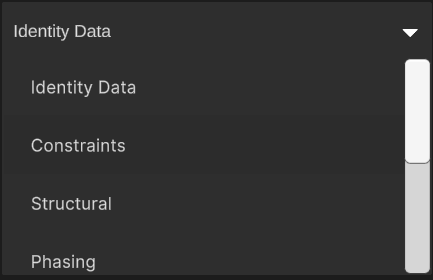
6. Device menu
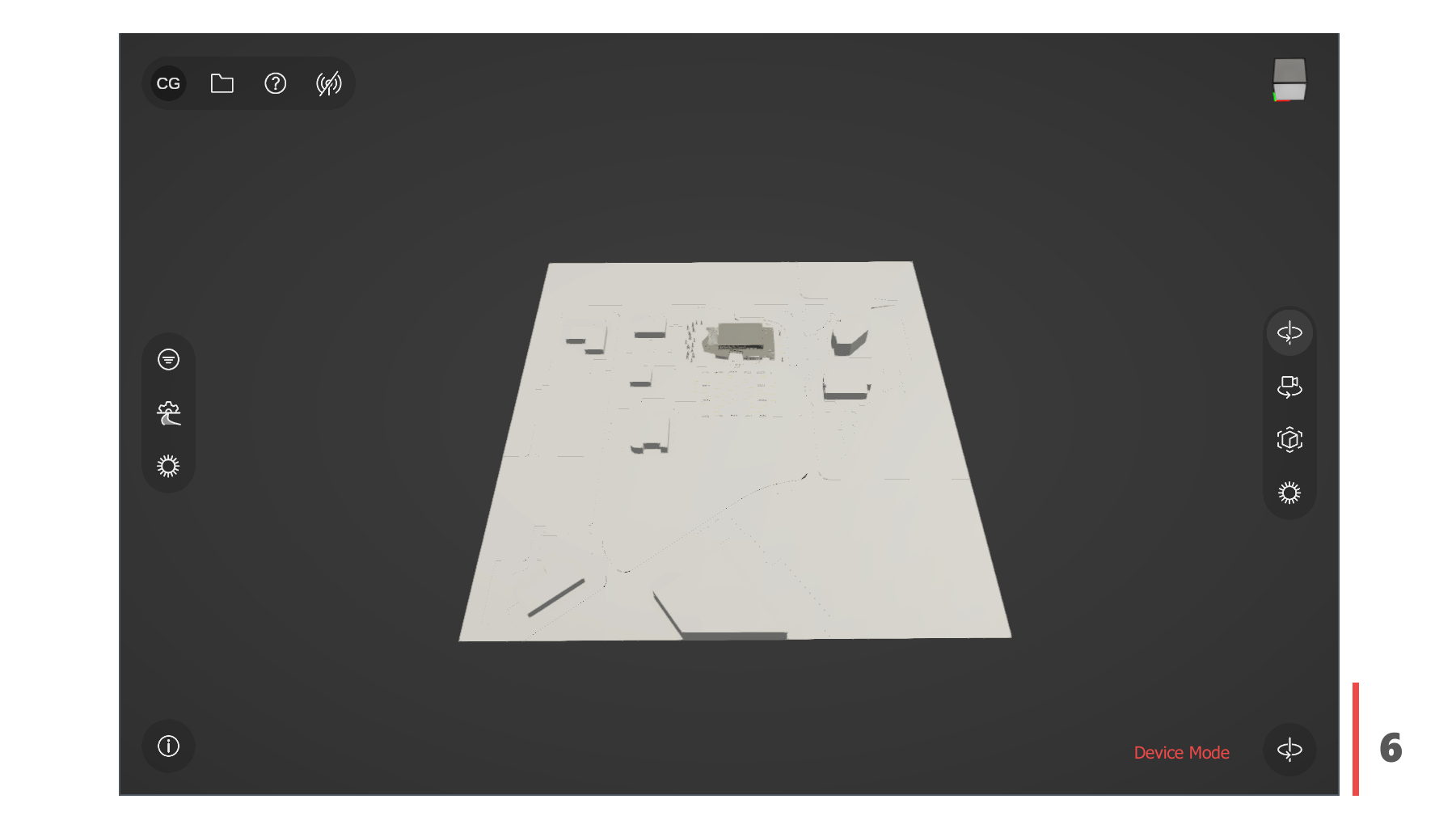
The button in the lower right corner of the Viewer displays the current device mode. Click this button to expand or collapse the device mode menu.
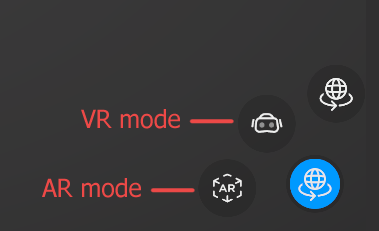
Enabling VR or AR mode
Click one of the device mode buttons to switch to the corresponding device mode. For more information, see: